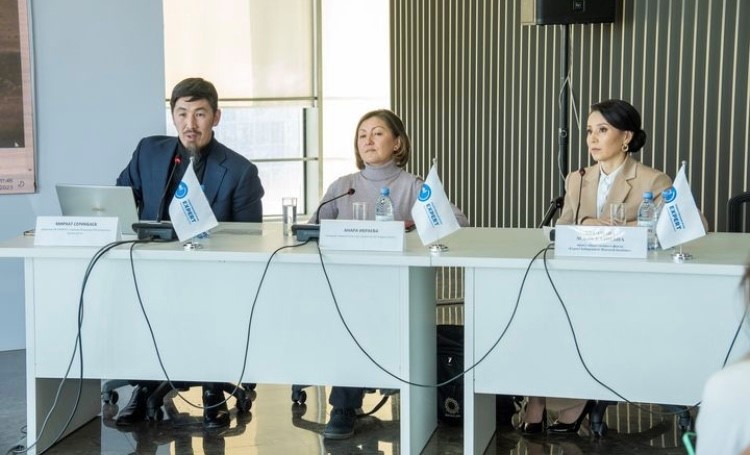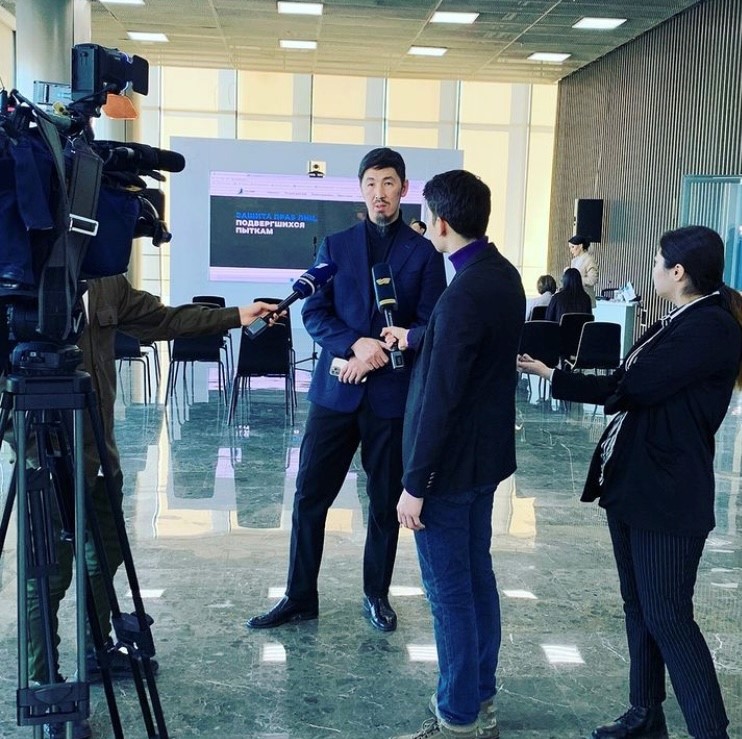For many years, cases of torture by law enforcement officers in Kazakhstan have not reached the court, as victims lacked evidence and access to complaint mechanisms. Yet after January 2022, when a series of mass protests triggered by a sudden surge in gas prices led to violent clashes between protesters and police, numerous reports of torture and cruel police treatment surfaced. The need for a more effective mechanism for filing complaints and investigating cases of torture became more pronounced. In response to this need, the Expert Independent Research Institute (EIRI) Public Foundation, with the support of USAID’s Social Innovation in Central Asia (SICA) program, launched a project to combat torture of Kazakhstanis by state law enforcement agencies. The team created an educational website and a series of free videos that has helped more than 5,000 victims of torture find step-by-step procedures to protect their rights. Moreover, thanks to SICA support, the organization conducted workshops and roundtables for law enforcement officials that received public recognition and more than 20 media mentions.

“It all started with wide public outcry that emerged after the January events, when much evidence of torture appeared in the media," says Mirkhat Serikbayev, the project coordinator. “Among 5,000 protesters who were arrested by police, many, apparently, were tortured, but there are no exact figures, as people were afraid of voicing their complaints. We wanted to offer help, so my colleagues and I started conducting live social media broadcasts on how to document torture and help victims and their relatives bring cases to the court and international attention."
Responses to the social media series made the team realize many torture victimswere in acute need of psychological and legal guidance. "What we needed was a platform gathering all the relevant information the victims of torture might find useful," Mirkhat says.
The team embarked on a search for international support and submitted an application for SICA's Innovative Solutions Grant, a funding opportunity that promotes public initiatives aimed at fostering positive change. The grant from SICA allowed the EIRI team to create a website that offers free help for torture survivors. Through the project’s website, www.pytkamnet.kz, victims can access a legal database, request free psychological and legal assistance, and view video tutorials. Tutorials systematically outline how to document instances of torture and file complaints with local and international organizations. The site aims to provide a signal to victims of torture who remain silent that there are international organizations, activists, and legal experts ready to help them achieve justice.
“The approach we take involves collaborating with both parties involved in the conflict. Our primary goal is to offer sufficient assistance to those who have suffered from torture and inform them about possible avenues for seeking redress for their rights violations,” Mirkhat says. “At the same time, we recognize the importance of working with law enforcement officials to raise awareness that the use of illicit investigation techniques, such as torture, could lead to severe repercussions for their professional careers.”
According to Mirkhat, the team faced a significant challenge in dealing with the stark reality of the statistics on torture cases. Anara Ibraeva, a project member and leader of the organization Kadyr-Kasiet, pointed out that there were only 25 verdicts for torture cases against police officers in 2020, five in 2021, and two or three in 2022 despite a consistent number of complaints. "The decreasing trend in the number of verdicts on torture cases every year is alarming, as it actually encourages police officers to use torture and disregard the law," Mirkhat adds.

To combat this issue, the team organized a workshop for 50 law enforcement officials. The workshop, led by human rights activists, lawyers, and advocates, included representatives of the Prosecutor General's Office, the Ombudsman for Human Rights, and the Coalition against Torture. The session included role-playing exercises that randomly assigned police officers to the roles of "interrogators" and "suspects." The former "interrogated" the latter using manipulative language. According to Mirkhat, the session provided police officers with the opportunity to step into the shoes of the suspects and understand firsthand the brutal nature of interrogation and torture. "Some of the participants told us that the workshop was 'mind-changing' for them," Mirkhat notes. "In fact, we were also able to convey to them that nobody is immune to persecution, including police officers themselves."
It helps that, with new legislative acts in place, the efforts of the EIRI team are now synchronized with Kazakhstan's evolving stance on police misconduct. In March 2023, parliament passed a law mandating that police officers must record interrogations on video. Additionally, the law transferred the management of prison medical units from the Ministry of Internal Affairs to the jurisdiction of the Ministry of Health. The Prosecutor General's Office now oversees cases of police misuse of power. "Previously, the Ministry of Internal Affairs [of Kazakhstan], which also oversaw the police, was the main body responsible for inspecting cases of torture and the quality of prison medical units," explains Mirkhat. "Clearly, when a single body inspects itself, there may be reluctance to prosecute one's own colleagues. Now that these responsibilities have been transferred to other respective bodies, there are reasons to believe that positive changes will start to take place."
The EIRI project already received positive feedback from participants. The team also formed partnerships with key stakeholders, such as the Prosecutor General's Office, the Ombudsman for Human Rights, and the Coalition against Torture to promote a coordinated and multi-faceted approach to tackling the issue of torture. For Mirkhat and the team, connecting with these institutions is a crucial step towards success.
"We often forget that there are people on all sides of the conflict. In order to effectively address the issue, we must actively engage in dialogue with both sides," Mirkhat emphasizes. "Our mission is to combat the use of torture by law enforcement agencies and hold them accountable. I am committed to making a positive change in the situation.".
 Learn more
Learn more
Address:
Almaty, Kazakhstan
609 Seifullin St
"Forum" Business Center
Thank you!